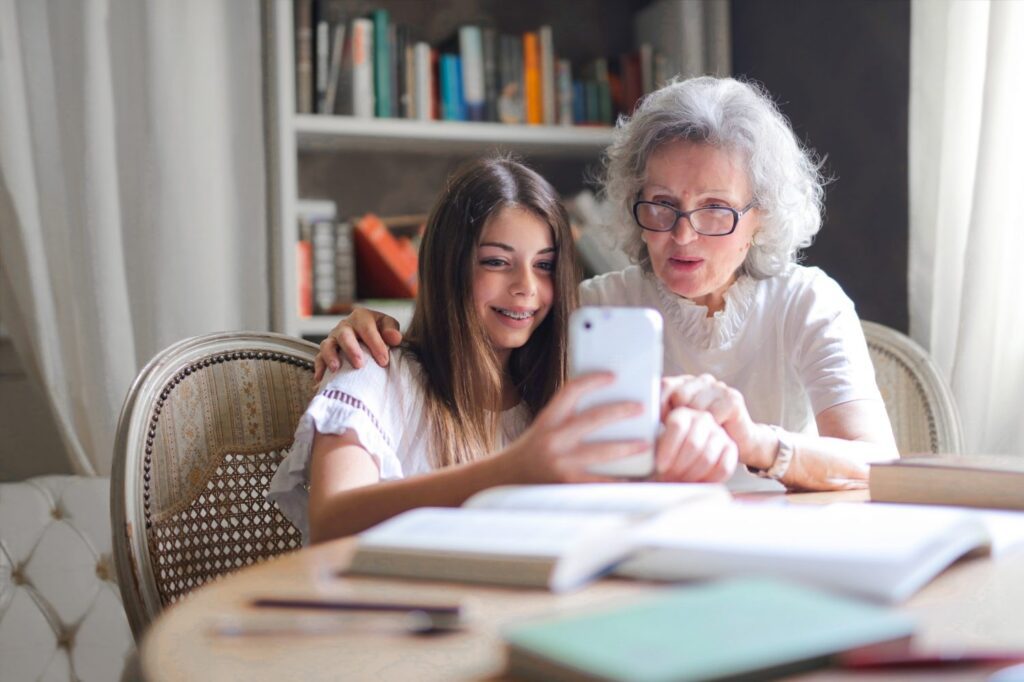‘Self-care activity’ is a foreign term to many older people. Growing up, many of our older generations felt ‘emotions’ weren’t an encouraged topic of conversation. ‘Depression’ and ‘Anxiety’ were also less heard of in conversations. Over the past 18 months, many older people have found themselves alone in lockdown, with long periods where they were not able to see their friends or hug their Grandchildren. Grandparents’ mental health has become a real concern during this pandemic. Anxiety help Oxford.
Mental Health during Lockdown
The lockdown restrictions were perhaps harsher for the older age group, many of whom live alone. It has been a lonely experience. Hugging grandchildren is something that brings much joy, but even this simple pleasure has been too dangerous, and some are still anxious about close contact with other people. The increased dangers of Covid-19 for older people also doesn’t help with mental health.
Over lockdown, younger people were working remotely, either with school, apprenticeships, or jobs. A lot of grandparents are retired, so their social groups, walking groups, and meeting up with friends usually filled their day. But these were banned and instead they were confined within four walls of the house passing time with crosswords, scrabble, books, and planning meals. The days can feel a little lacklustre.
For Grandparents who aren’t as tech-savvy as the younger generation, their days can be markedly quiet. There is little to distract them from their thoughts. There is no virtual reality to escape to until their favourite TV show comes on in the evening. Video calling for many is a step too far, so a voice on the phone is as close as they still get to interacting with others.
Talking about Mental Health
If you’ve ever tried talking to a Grandparent about mental health it may feel as though they couldn’t grasp what you meant. The reality is likely down to growing up in different times. These days, the younger generation follow mental health accounts on Instagram, listen to meditations on YouTube and own bullet journals to track moods. They are very aware of the importance of mental health, mental wellbeing and self-care, but to the older generation, it can be a different language. This can make it harder to talk about how they are feeling. Nevertheless, if you ask what cheers them up, the answers are likely to be sensible, tried-and-tested remedies. ‘Lose yourself in a good book’, ‘go for a walk in the countryside’, ‘call a friend’, or ‘develop a routine’.
Ways to Support Your Grandparents’ Mental Health
#1 Send Them a Letter
It’s easy to text someone a message, but sending a letter involves time and effort, and this is felt by the person receiving it. A recent study showed that suicidal patients who received personalised letters were 80% less likely to have a repeat suicide attempt than controls who received no letters. When people are feeling down, they can sometimes find it hard to remember who cares about them. Letters can counteract that feeling! The long monologue also enables you to dive into how you’ve been feeling – it can be therapeutic to write and to read someone else’s life experiences in more depth.
#2 Go For a Walk in the Countryside
Now that lockdown restrictions are eased, green leaves, sunshine, exercise and a chat are simple remedies for low mood. Exercising in the outdoors boosts self-esteem and mood at any age, and has an enhanced effect on the mentally ill. Visiting places with water can be particularly beneficial for mood, so if able, go for a walk by the river or find a local pond to feed the ducks!
#3 Just Listen!
A listening ear at the end of a phone when times get hard can be all we need to lift our spirits. Life may be lonely for Grandparents who are self-isolating, and a sense of companionship could benefit their well-being.
All clinicians at Reading CBT practice Cognitive Behavioural Therapy or are Psychologists, offering evidence-based interventions and support for a range of issues for both young people and adults. If you would like to book an appointment you can do so on our online booking portal. If you have a question please get in touch via our online contact form or call us on 01865 920077.



